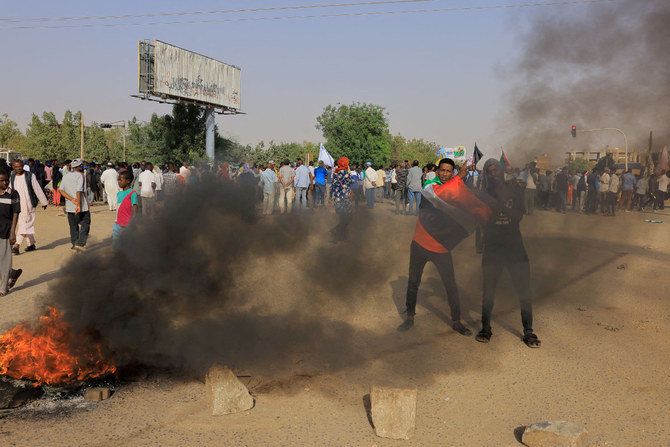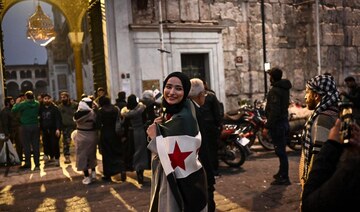KHARTOUM: Sudanese protesters marched in neighborhoods across the capital and the country on Thursday in protest at October’s military coup and a wave of political detentions.
The takeover ended a partnership between the military and civilian political parties, drawing global condemnation and plunging Sudan into political and economic turmoil.
Protests organized by resistance committees have drawn hundreds of thousands of people, and at least 79 have been killed and more than 2,000 injured in crackdowns.
On Thursday, hundreds of protesters diverged from planned routes to renew efforts to march on the presidential palace, but were met with tear gas and a heavy security presence a little more than a kilometer from their goal.
“We will continue demonstrating in the streets until we bring down military rule and bring back democracy,” said 22-year-old university student Salah Hamid.
Other protests took place across the Nile in the cities of Omdurman and Bahri, and farther away in Gadarif and Sennar.
The US Embassy in Sudan said on Twitter that acts of civil disobedience were expected to take place in Khartoum and other states, warning of decentralized demonstrations, road blockages, and business closures. The embassy instructed Americans to avoid crowds and demonstrations and to keep a low profile.
Sudan’s long-standing economic woes have been exacerbated since last month by the blockade of the Northern Artery, a key route for trucks carrying exports from Sudan into Egypt.
That protest, originally against a rise in electricity prices for farmers, has expanded to reject military rule and demand more support for both farmers and traders, and has trapped hundreds of Egyptian trucks in Sudan.
While some protesters in Khartoum said they were opposing a normalization of relations with Israel that has been spearheaded by the military, others marched for the more than 2,000 people who lawyers say have been arrested since the coup.
More than 100 remain in jail, one lawyer said on Thursday.























